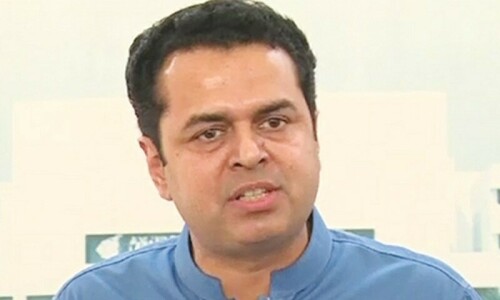KARACHI: National and international health experts at a two-day research symposium on cancer that opened at the Aga Khan University on Wednesday expressed their concern over increase in lung and breast cancer cases in Pakistan and concluded that the chance of one developing cancer mostly depended on one’s lifestyle.
The 18th National Health Sciences Research Symposium examined many aspects of the lethal disease and its negative impact on Pakistanis for a variety of reasons.
The first day of the symposium saw the experts addressing ways to improve the situation and become part of the global fight against the disease spreading with epidemic proportions. They underlined the need for an integrated effort from medical professionals, health workers, academia, government and civil society to prioritise cancer-related issues, raise awareness among the public and build capacity to support action against this disease.
Discussing preventive measures, Dr Malcolm Moore, head of the Union for International Cancer Control, Asia regional office, Korea, underlined the need to adopt a healthier lifestyle and diet. Comparing cancer statistics across South Asia, he said lung cancer in Pakistan might be on the rise due to smoking, nutritional and hormonal factors while breast cancer was also found to be highly prevalent in the country.
In the developed world, cancer registries offered an unbiased profile of the disease and provided reliable population-based information needed to develop country cancer control plans, he said.
Uzma Rizwan, director, Cancer Data Centre and Accreditation - CarePoint Health, the US, explained types of cancer registries available and how they could serve as a model for Pakistan. “Data collection is important, but to use the data is far more important,” she added.
Dr Abida Sattar of the AKU said approximately one in every eight to 10 women in Pakistan suffered from breast cancer and warned signs such as a breast or armpit lump, breast retraction or skin changes should not be ignored. Dr Sattar advised women over 35 years should have a ‘baseline’ mammogram followed by a routine mammogram every year. Early detection could make a lot of difference, she added.
Dr Javaid A. Khan was of the opinion that mouth, throat, lungs and food pipe cancer was 10 times more prevalent than all other cancers.
Dr Zehra Fadoo said there were about 8,000 children less than 18 years of age in Pakistan suffering from cancer. “Lack of access to good quality medical advice, early diagnosis, timely treatment and care and essential medications are the reasons why children with cancer in developing countries often do not survive,” she said.
Rehana Elahi of Shaukat Khanum Memorial Cancer Hospital and Research Centre, Lahore appreciated the pivotal role that nurses played in cancer patients’ interaction with the hospital.
Dr Farhat Abbas, Dr Salman Adil, Dr Ikram Burney from Oman, Dr Muzaffar H. Qazilbash from the US, Dr Farrok Karsan, Dr Shaista Khan, Dr Tahir Shamsi, Dr Humayon Bashir and Dr Shahryar Noordin also spoke.
Published in Dawn, February 26th, 2015
On a mobile phone? Get the Dawn Mobile App: Apple Store | Google Play















































